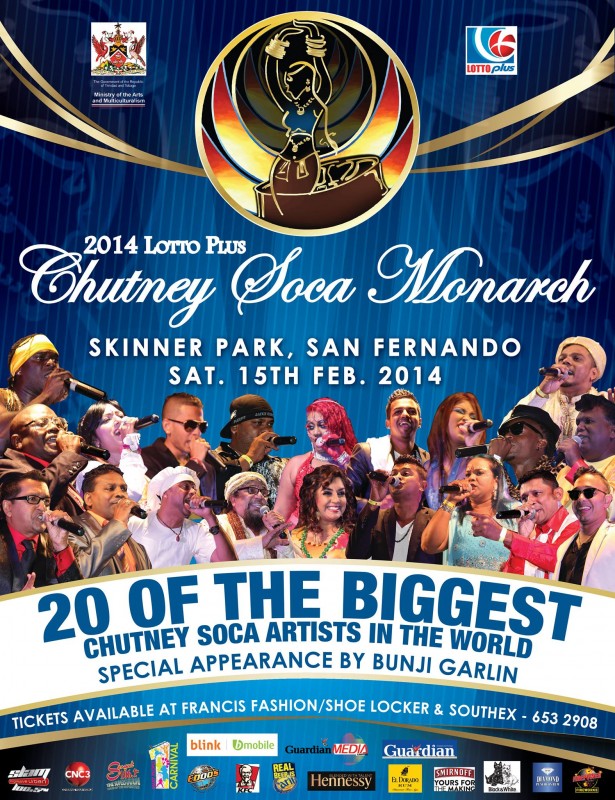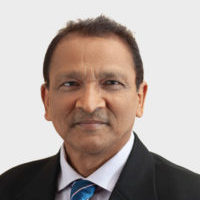 When people get angry, they tend to speak their mind. Their emotions explode in words that they have been suppressing for some time.
When people get angry, they tend to speak their mind. Their emotions explode in words that they have been suppressing for some time.
Psychologist Dr Jeffrey Huntsinger proved this theory after conducting experiments at Loyala University in Chicago in the USA in 2012.
Chutney Soca promoter George Singh really spoke his mind when he became upset on learning that his 2018 show was not funded by the National Lotteries Control Board (NLCB),
an agency of the Afro-dominated Government in multi-ethnic Trinidad and Tobago (T&T).
At a news conference which he convened, Singh said that “the decision by the Government not to support chutney soca was an insult to the art form” (Express 05/02/17).
Singh raged: “The Government, over the last three years, has consistently reduced funding to Chutney Soca Monarch and various members of the present administration have stated directly to me that chutney soca brings no value to Carnival” (emphasis added).
At the same news conference, Singh said that the Government had approved a budget of TT $146 million to the National Carnival Commission (NCC).
“I think this administration is hell-bent on seeing that it [chutney soca] has no place in Carnival. It is a slap in the face to Indo-Caribbean entertainment,” he said.
Singh’s outburst was a public exposé of what the Indo-Trinidadian (Indian) community had always known i.e. Indian culture (e.g. chutney, pichakaree ) is given marginal or no space in “national” and regional shows (e.g. CARIFESTA).
Sing’s rant is more revealing since he has admitted that he has “family ties” to Attorney General Faris Al-Rawi (Express 27/12/17).
In all his anger, Singh was careful not to confirm what almost every Trinidadian suspected i.e. that Government initially denied him funding because he was allowing Massive to perform his hot chutney hit “Rowlee Mudda Count.”
The satire on Prime Minister Rowley’s mother has been arguably the most controversial song in the history of calypso, soca and chutney in the country.
I have always contended that chutney concerts, competitions, tents and fêtes must be recognised as part of Carnival and must be given an equitable share of culture funds, media space and stage presence.
My argument is contained in detail in a chapter entitled “Chutney Music in Carnival:
Re-defining National Identity in Trinidad and Tobago” in the book Caribbean Dynamics:
Re-configuring Caribbean Culture (2015). The book is edited by Drs Beatrice Boufoy-Bastick and Savrina Chinien and published by Ian Randle in Jamaica.
In the chapter, I discussed how Carnival in Trinidad has long been the cultural preserve of the Afro-Trinidadian (African) community. To this day, the major players and champions of calypso, soca, extempo, steelpan and masquerade, whether in Jouvert (“Jour Ouvert”) or Dimanche Gras, remain participants of African descent.
The emergence of chutney music and artistes in 1995 – when Basdeo Panday was elected as the first Indian Prime Minster of T&T – was historic. In 1996, the rendition of Sonny Mann’s runaway hit “Lotay La” by DJs in soca parties, and by steel bands as their Road Mach tune during Carnival, signalled the advent of chutney into the national urbanized festival/centre.
In the following years, Indians continued to change the ontology of “the national festival” to the extent that Carnival has to be re-defined to include Chutney Monarch, Chutney Brass, Chutney Soca, Chutney Calypso, Chutney Glow and Chutney Mardi Gras.
For the first time this year, a new chutney show is being introduced to the Carnival calendar. It is the International Chutney Queen Competition to be held on February 2 at Guaracara Park in San Fernando, the second largest city in the country.
Chutney is being strongly influenced by calypso and soca rhythms and dance styles, but the genre is also used as an alternative to the Afro-Creole music formats. There have been two institutionalised chutney calypso theatres: “D” Massive Gosine Roving Calypso/Chutney Tent and the National Chutney Calypso Touring Tent. Now in its eighth year is the National Carnival Schools Intellectual Chutney Soca Monarch Competition held at the Queen’s Park Savannah in Port of Spain.
These chutney competitions cum fêtes allow Indians to gain a sense of inclusion in this grand “national” festival, although on the periphery of the capital city. These cultural incursions also allow Indians to actively participate in Carnival without losing their (sense of) ethnic identity.
Chutney has been able to resist the domination of calypso as the heartbeat of Carnival music. The subversive spirit of calypso and Carnival is perhaps being re-incarnated in chutney.
Calypsonian Cro Cro and others should accept that chutney soca has become part of Carnival. When he learned that his Icons calypso [kaiso] tent was not getting additional funds from the Government, he fumed: “Kaiso and Carnival is what supposed to keep this country alive and we supposed to get enough to run the kaiso business. How come chutney get?” (Newsday 28/01/19).

is a full-time anthropologist at the University of Guyana (UG) and Fellow of The Eccles Centre for American Studies, British Library (2022-23). He is a former Assistant Professor at the University of Trinidad and Tobago (UTT). He obtained his Ph.D. in Anthropology from the University of Florida (UF). As a doctoral student, he won a Florida Caribbean Institute Award, an A. Curtis Wilgus Grant, and an Organization of American States (OAS) Fellowship.
Mahabir received a National Award (Hummingbird Silver Medal) for his contribution to education in his country in 2011. He was among 50 recipients who received a Distinguished Alumni Award from the UWI Alumni Association.
Mahabir is the author of 12 books to date.
